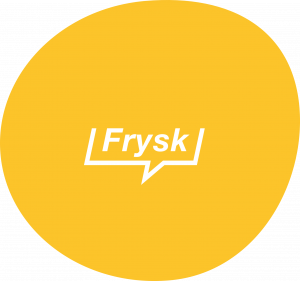Frisian originated in the early Middle Ages. Then it increasingly became its own language and began to distinguish itself from other related Germanic dialects, such as Old English.
Old Frisian was not only spoken along the North Sea coast, but between Vlie and Weser it was also used in the late Middle Ages, for example in legal texts, as a written language and as an administrative language. In the course of the sixteenth century, Frisian fell into disuse as a written language. But a few still wrote it. In the nineteenth century, Frisian again became a written language. A lively literary climate then arose and the language developed further through the cross-pollination of speaking and writing. The Frisian folk theatre, which flourished from 1860, was especially important in this regard.
Official status
Since 1956, Frisian has had an official status in the province of Friesland that is equal to that of Dutch. In that year a start was made in the Staatsblad 1956, 242 with the formally permitted use of Frisian in legal transactions. An extension of this was established 39 years later in the Staatsblad 1995, 440. Although this has of course been the case for a long time in practice, the Frisians were then legally given the right to use their language in meetings of municipal councils and Provincial Councils. In 1997, the possibilities for using Frisian in court were further extended by law, so that now the Public Prosecution Service and the judiciary there are also allowed to use Frisian.
The inhabitants of Friesland have been able to communicate and correspond in Frisian with municipal and provincial authorities for many years. The province and some municipalities have made it a policy point to use more Frisian when drafting official documents. Due to a number of legislative changes, such Frisian documents are now legally valid in almost all cases. One of the last exceptions to this were association statutes, but since 2002 they can also be drawn up in Frisian. Today, marriage and birth certificates are available bilingually in all Frisian municipalities.
In 2014, the Use of Frisian Language Act came into effect, which brings together various previous provisions. For example, it stipulates that Frisian and Dutch are the official languages of the province of Friesland, and this law also obliges the central government and the Provincial Executive of the province of Friesland to make periodic administrative agreements.

